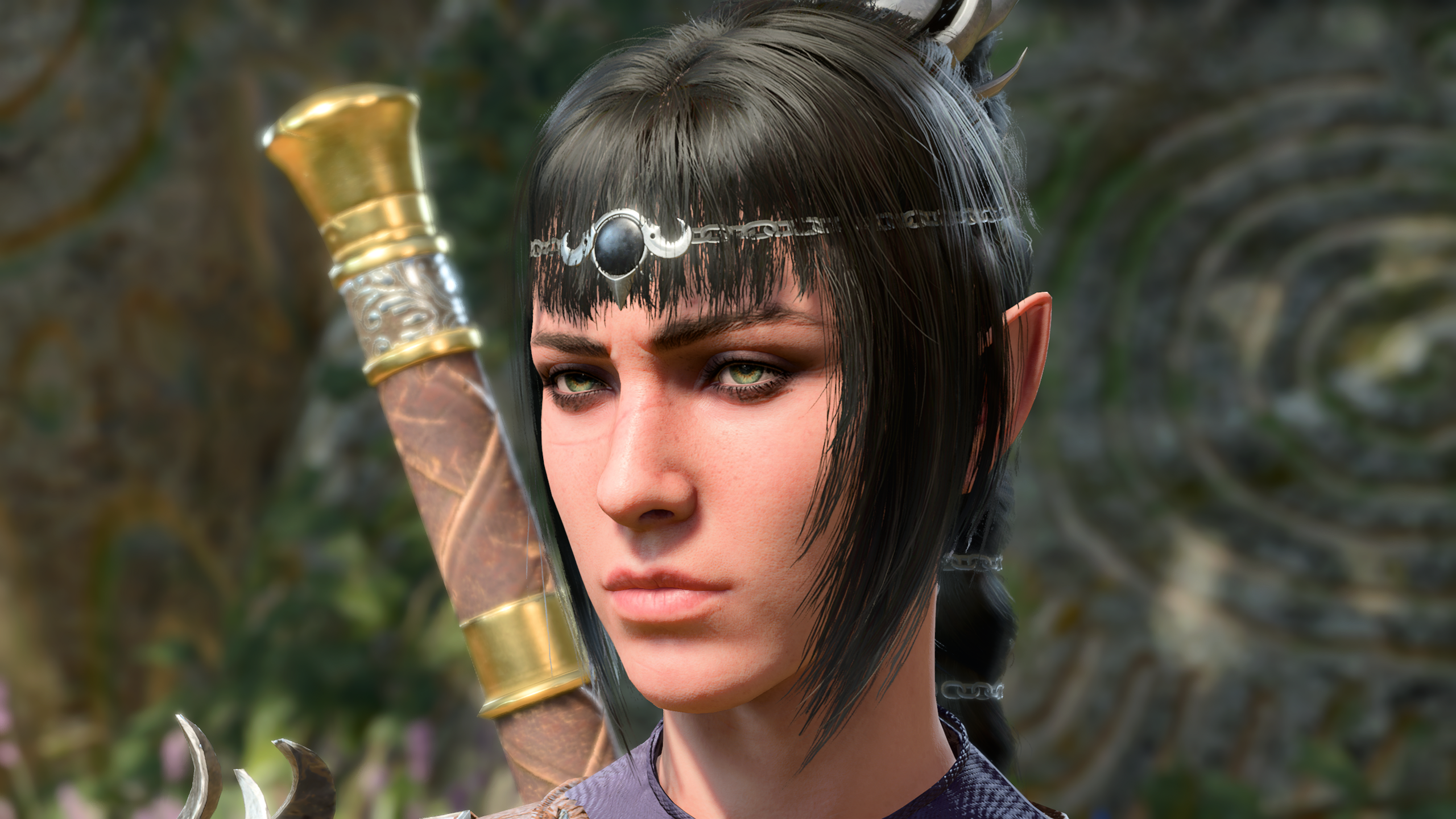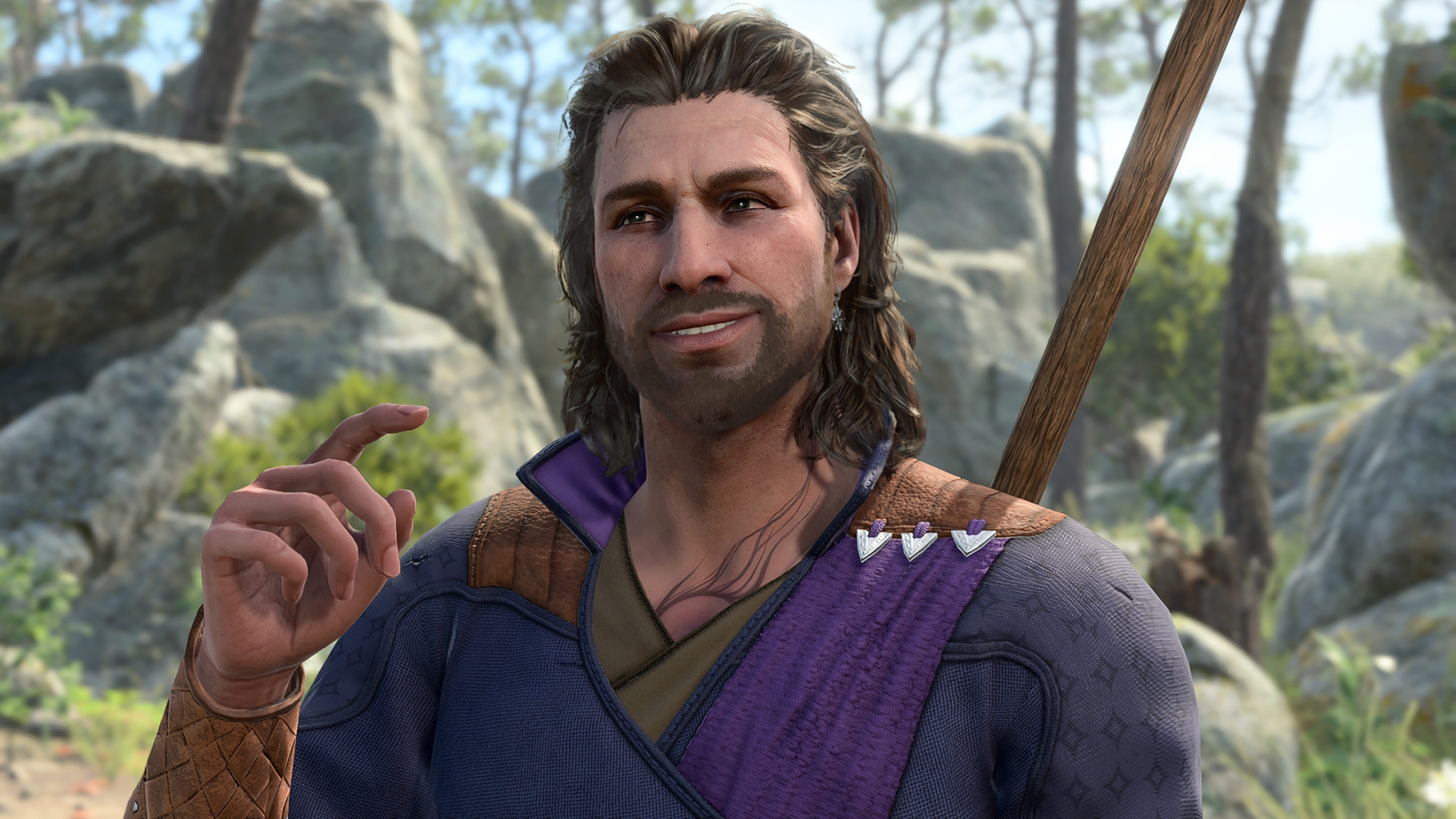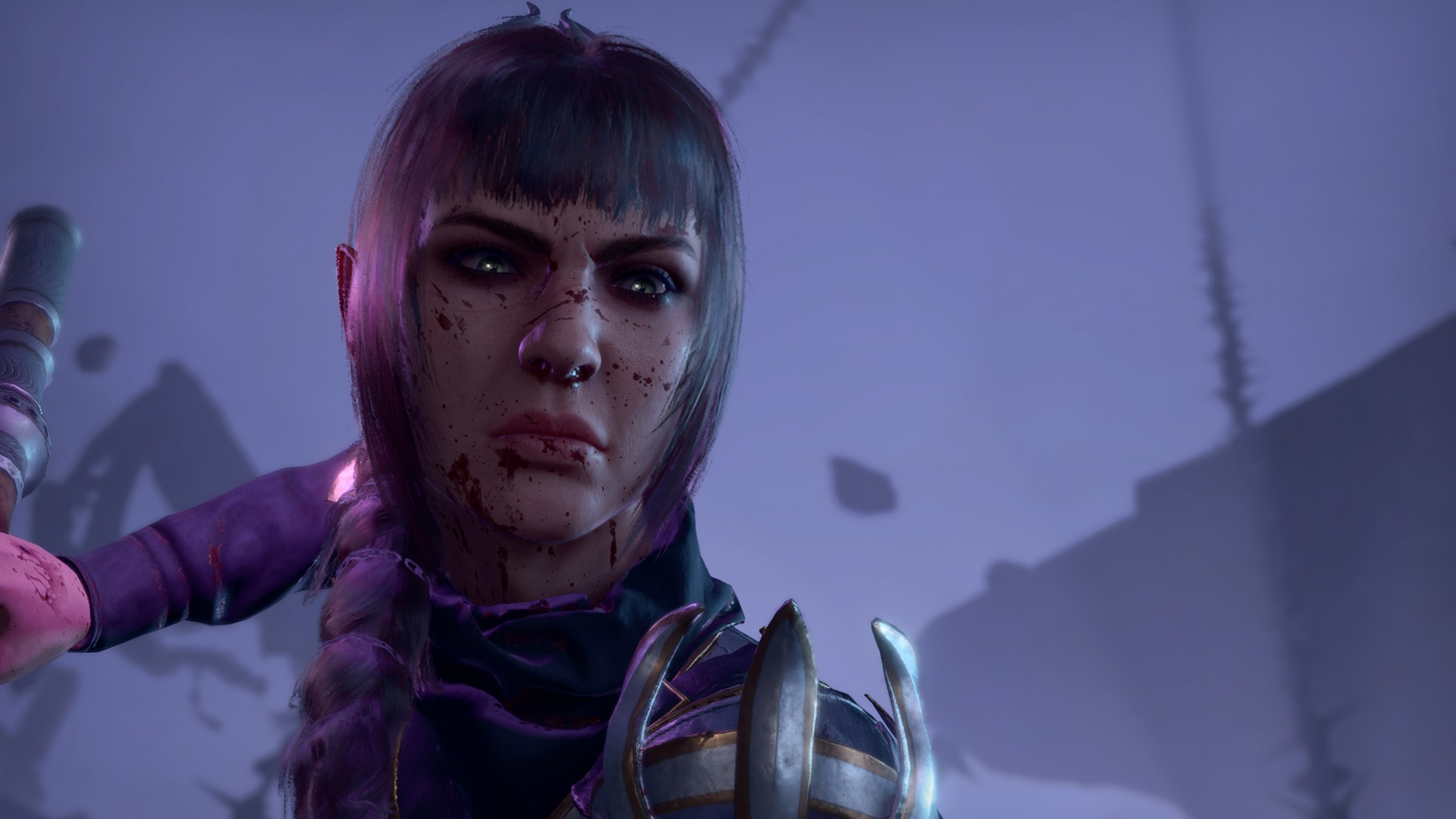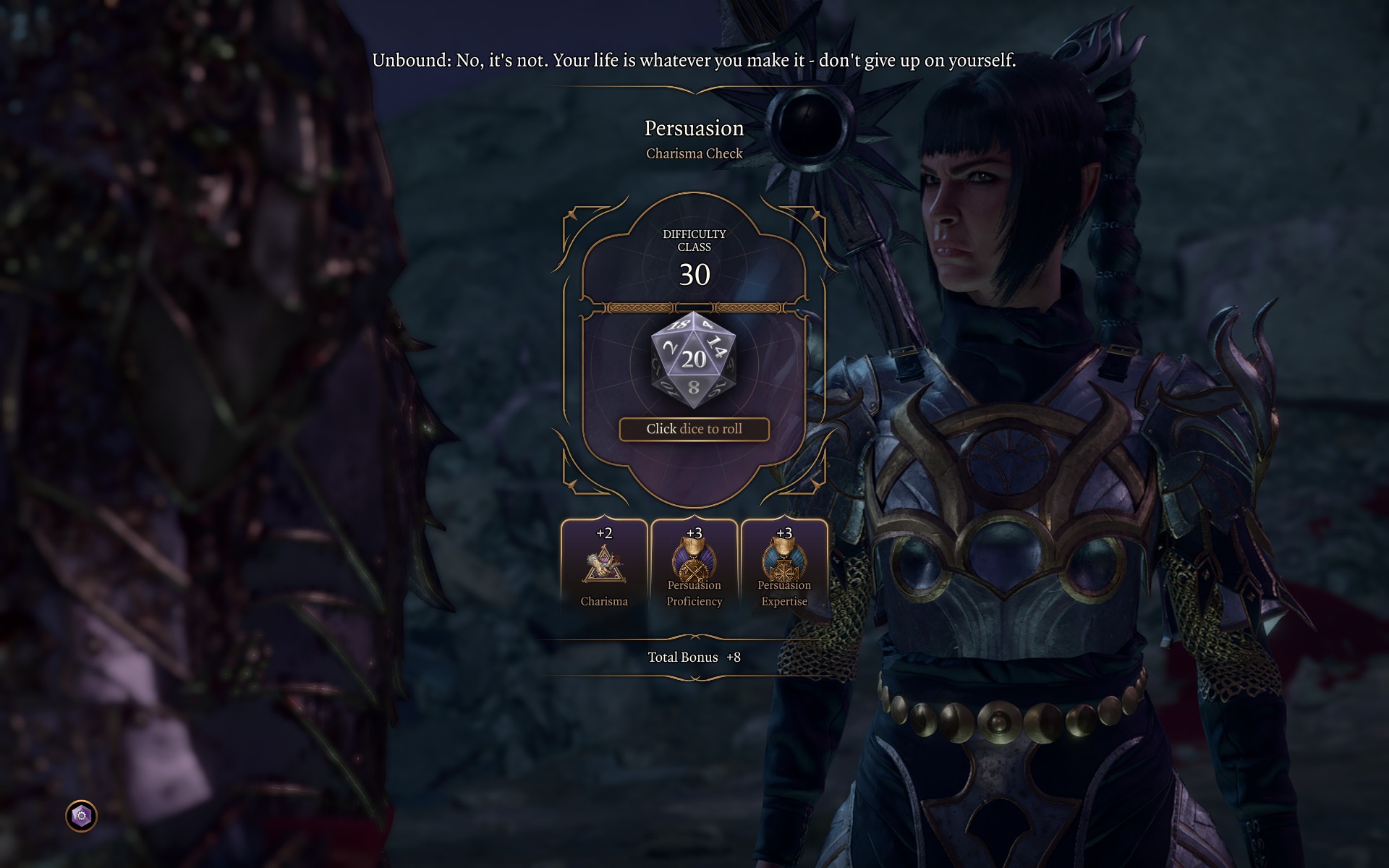The best thing about Baldur's Gate 3's companions is that they keep getting in your way
Nobody was sworn to carry your burdens.

"You killed Connor. You killed him. A little boy, how could you do that?" Whenever I think about companions in RPGs, these words stick in my head. They're not from the mouth of any of Baldur's Gate 3's cast—instead, they come from Alistair, a companion character in BioWare's classic RPG Dragon Age: Origins.
I was around 14 years old when I finished the Redcliffe storyline (spoilers, just in case you've not played it). In it, you're tasked with rescuing the village's Arl—and his army—to help in your fight against the Darkspawn. Only one problem, though: the Arl's ill, and his castle's being swarmed by the undead. You eventually discover that his son, Connor, has been possessed by a demon, and after subduing him, you're faced with a choice.
You can either allow a blood magic ritual to be performed, which would kill Connor's mother, or go to the mages to beg for Lyrium. Or you could kill the kid. Naive teenage Harvey was petrified of what would happen if I went to the mages—that could take in-game days, months. I'd assumed the game might keep track of time, and punish me with a much worse ending.
Since Connor's possession had killed so many already, I made that choice, and Alistair rightly ripped me a new one for it. Much to my annoyance I later found out that there wasn't a timer or anything—you could totally make the trip there and back without issue. In the moment, though? It felt awesome to be forced into that choice and to have a companion refuse to stand for it. Horrible, but awesome. Alistair wasn't just a pretty face I could feed gifts—he was a character with his own ethical lines in the sand.
The cast of Baldur's Gate 3 follows that same design philosophy. They have their own goals and ideas. They're not just walking blocks of hitpoints carrying stat sticks to bash your enemies with. They're part of the game's world, and to keep everyone happy you need to negotiate their moral philosophies and desires.
In short, they're an absolute pain in your ass, they'll get in your way, and I love them for that. I'm going to be talking a lot about the game's story—including the ending of Act 2, so if you're still catching up, beware.
The Galephant in the room


Baldur's Gate 3 guide: Everything you need
Baldur's Gate 3 tips: Be prepared
Baldur's Gate 3 classes: Which to choose
Baldur's Gate 3 multiclass builds: Coolest combos
Baldur's Gate 3 romance: Who to pursue
Baldur's Gate 3 co-op: How multiplayer works
Before we get into my primary example, I think we've gotta talk about Gale.
The biggest gaming news, reviews and hardware deals
Keep up to date with the most important stories and the best deals, as picked by the PC Gamer team.
When I say 'Baldur's Gate 3's companions get in your way', this magic item-hungry wizard probably misty stepped to the front of your mind. You're not wrong—it is a pain that Gale needs to chomp through your year. It's the first companion tax you're forced to pay, and it uses in-game items to do it, but the rest of your camp's far from innocent.
Astarion wants you to get him an audience with a devil, Lae'zel is dragging you by the other arm to a creche—whatever that is—and Wyll needs you to hunt down a hellish fugitive. Shadowheart's super cagey about her magic dice, and Karlach needs you to bank infernal iron you could otherwise sell for an early-game buck. Throughout the game, this kind of thing's a constant—you're constantly being distracted and bumped around by your party members.
They won't stand for your nonsense if you go full evil, either. Assaulting the druid grove loses you a handful of companions and, in true BioWare fashion, passively annoying them enough will make them spit in your face and walk away. So yeah, I'm team Gale. His item tax is annoying, but he's otherwise well-adjusted, reasonable and level-headed. A small price to pay for fireballs, in my opinion.
Gale's hunger for magic stuff is a great way to build tension between the player and the game's story—but the scene that really sticks with me comes from Shadowheart's storyline in Act 2.
The Tell-Tale Shadowheart

So, I'm obviously about to go into major spoilers for the end of Act 2 here. That's your last warning, adventurer.
Shadowheart does far more to derail you at the end of Act 2 than Gale ever does. As the only cleric among the core cast (unless you pay Withers for a bit of non-canon respeccing), Shadowheart is likely to end up in your crew no matter which way your moral compass points.
It helps that she's not outright evil—just a touch distant and aloof, claimed by a dark and mysterious god. She's not altruistic, but she has a soft spot for helping children. She likes it when you avoid violence with charm and guile. And, when it turns out her artefact is shielding your group, she does eventually open up—a little.
This makes the entire Gauntlet of Shar and the ensuing confrontation with the Nightsong so genius. Larian doesn't pull any punches here. While it's possible to save Shadowheart from a life of Shar worship, it's also really damn hard, to the point where I wrote a whole guide about threading that particular needle while saving the Nightsong. It would've been easy to make this a multiple-choice quiz—instead, doing the right thing will push your silver tongue to its limits.

If you want to talk her back from the edge, you need to succeed on either a whopping DC 30 or a DC 21 persuasion check. If you can't do that, you either need to kill her, let her leave your party for good, or allow her to go through with spearing the Nightsong. None of those options are great, especially since that last one drops the shield over Light's Hope Inn, killing everyone inside.
Unless you're going full-tilt evil, Shadowheart gets in your way. Despite being a likely choice for most players in need of some healing, Larian was comfortable using her sole cleric status to twist the knife. If you want to keep her in your party, you better have the right words to say to her. If you want to keep your friends at Light's Hope alive, you need to stop her. Getting the best ending for her character is deservedly hard.
Inconvenience is good, actually
I brought up Alistair from Dragon Age: Origins before, but this tradition of gaming's greatest companions eventually standing in your way is long-standing. I asked some of my co-workers which ones were memorable to them, and I received an avalanche of answers.
The Mass Effect series features life-or-death scenarios with Mordin and Wrex, while the friction between Tali and Legion culminates in sacrifice no matter what. Kreia from Knights of the Old Republic 2 constantly encourages you to treat your friends like dirt, while Planescape: Torment's Vhalior will try to behead you if you act out. One of them even mentioned Kenny from Telltale's The Walking Dead and—man. Not a CRPG, but that kinda counts, at least from a story structure perspective.
The point being, no one remembers the companion characters who just trail along behind us and swear to carry our burdens. The best ones interfere, demand we make choices and sacrifices, and have their own goals to achieve. I'm just now properly sinking my teeth into Baldur's Gate 3's third act, but everything I've seen leading up to this point has only confirmed that Larian's writers have completely understood the assignment.

Harvey's history with games started when he first begged his parents for a World of Warcraft subscription aged 12, though he's since been cursed with Final Fantasy 14-brain and a huge crush on G'raha Tia. He made his start as a freelancer, writing for websites like Techradar, The Escapist, Dicebreaker, The Gamer, Into the Spine—and of course, PC Gamer. He'll sink his teeth into anything that looks interesting, though he has a soft spot for RPGs, soulslikes, roguelikes, deckbuilders, MMOs, and weird indie titles. He also plays a shelf load of TTRPGs in his offline time. Don't ask him what his favourite system is, he has too many.

